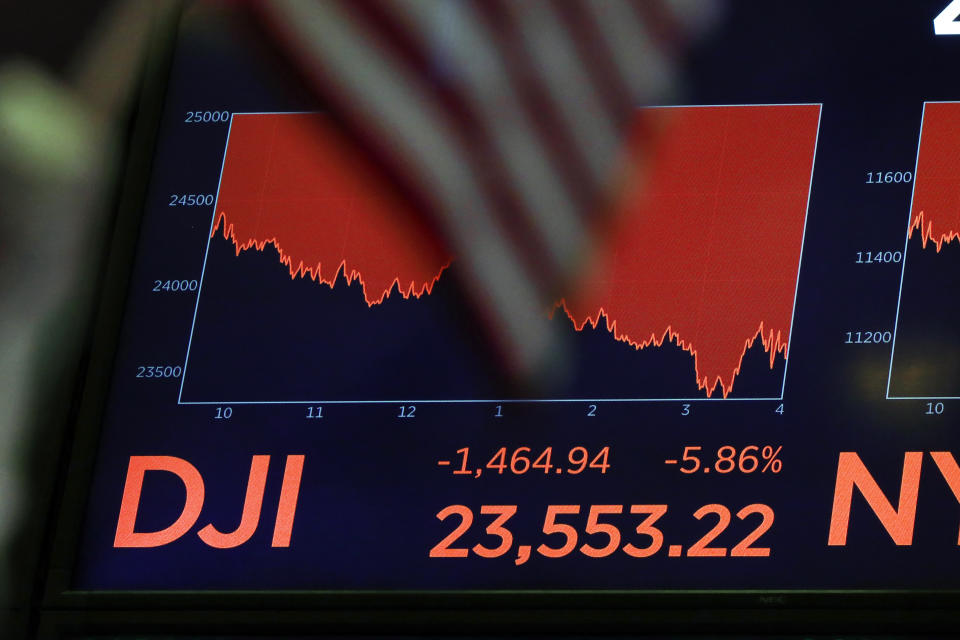Goldman Sachs warns the S&P 500 could sink to 2,000
Goldman Sachs sees potential for the S&P 500 (^GSPC) to drop to 2,000, down 41% from the all-time high, before rebounding to end 2020 at 3,200 as the impact of the coronavirus (COVID-19) roils markets.
"The swiftness of the bear market has unsettled many young market participants," Goldman's chief equity strategist David Kostin wrote in a note on March 13. “In contrast, veteran investors recalled the rout of Black Monday (October 19, 1987) – when stock prices collapsed by more than 20% in a single day. The lesson of prior event-driven bear markets is that financial devastation ultimately allows a new bull market to be born.”
Last week after an 11-year bull market run, the Dow Jones Industrial Average (^DJI) officially entered a bear market, marked by a 20% drop from its most recent high. The S&P fell into a bear market the following day.
"The coronavirus has created unprecedented financial and societal disruption. Equities are a leading indicator because a bear market has occurred without the release of any relevant earnings or macro data. This week, the most frequently asked question from investors was 'what is the floor for stocks?'" Kostin wrote.

To be sure, it's difficult to be precise, given the market's volatility.
"A combination of tools suggests the S&P 500 could trough around 2000... But, as noted above, event-driven bear markets are usually followed by sharp rebounds, and we still expect S&P 500 will end 2020 at 3200..." he wrote.
At the moment, Kostin points out that analysts have "been slow" to incorporate the negative impact of COVID-19 in company earnings estimates as the virus has wreaked havoc across industries.
"Analysts are constrained by the uncertainty of the outlook and the dearth of management guidance, but eventual downward revisions will be catalysts for lower stock prices," he wrote.
Futures on Monday indicated a sharply lower opening after the Federal Reserve cut interest rates by 75 basis points to a range between 0% and 0.25% as fears of a recession grow amid the coronavirus pandemic.
Julia La Roche is a Correspondent at Yahoo Finance. Follow her on Twitter.
